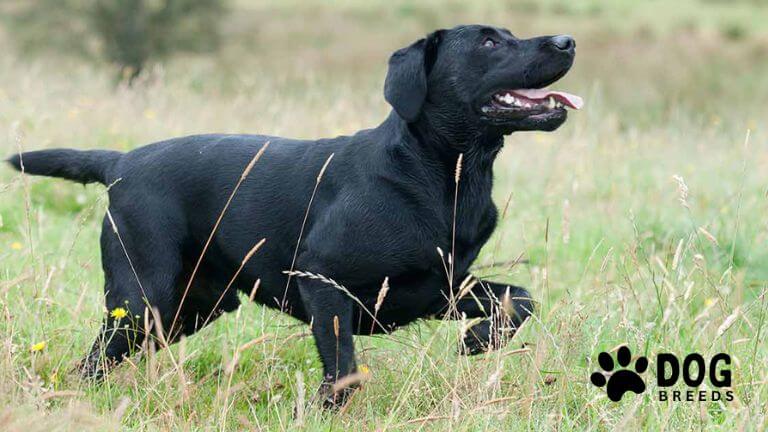Lab Pointer Dog Breed: Traits, Care, and Training Guide
The Lab Pointer is a unique mixed breed that combines the intelligence and friendliness of the Labrador Retriever with the athleticism and hunting prowess of the Pointer. Known for their loyal nature and high energy, Lab Pointers are an ideal choice for active families and outdoor enthusiasts.
This article delves into every aspect of the Lab Pointer, from its origin and appearance to its care needs, personality traits, and health considerations. Whether you’re a prospective owner or just curious about this remarkable hybrid, you’ll find valuable insights supported by research and real-world data. By the end of this guide, you’ll have a clear understanding of what makes Lab Pointers such exceptional companions.
What Is a Lab Pointer Dog?

A Lab Pointer is a mixed breed dog, a cross between a Labrador Retriever and a Pointer. This hybrid is known for its friendly disposition, intelligence, and remarkable agility.
Lab Pointers inherit the best traits of their parent breeds. From the Labrador Retriever, they gain loyalty, trainability, and a love for people. The Pointer contributes athleticism, sharp instincts, and a drive for outdoor activities. These dogs are typically medium to large-sized, with muscular builds and short, low-maintenance coats.
Lab Pointer History and Origin

The Lab Pointer’s history combines the rich legacies of the Labrador Retriever and the Pointer, two breeds with distinct backgrounds.
Labrador Retrievers originated in Newfoundland, Canada, where they were bred as fishing and hunting companions. Their intelligence and trainability made them favorites among hunters and families alike. Pointers, on the other hand, have roots in England and were bred as bird-hunting dogs, prized for their ability to “point” at game birds.
The Lab Pointer mix likely emerged in the United States during the 20th century as breeders sought a versatile working dog that combined the Labrador’s friendly demeanor with the Pointer’s athletic abilities. While not officially recognized as a breed by major kennel clubs, Lab Pointers are registered with designer dog organizations.
Lab Pointer Appearance
Lab Pointers are medium to large-sized dogs with a strong, athletic build. Their appearance reflects a blend of their parent breeds.
Most Lab Pointers have a broad head, expressive eyes, and floppy ears. Their short coats are smooth and come in a range of colors, including black, brown, white, or a combination. They have long, muscular legs and a well-proportioned body, making them agile and fast. These dogs typically weigh between 50 to 80 pounds and stand 20 to 28 inches tall at the shoulder.
Personality and Temperament
Lab Pointers are known for their friendly and outgoing personalities. They thrive on human interaction and form strong bonds with their families.
These dogs are intelligent, making them easy to train, and they’re eager to please their owners. Lab Pointers are also energetic and require plenty of physical and mental stimulation. Their hunting heritage means they have a strong prey drive, making them best suited for homes with fenced yards. Despite their high energy levels, they are gentle and affectionate, making them great companions for children and other pets.
Training and Exercise Needs
Lab Pointers are highly trainable thanks to their intelligence and eagerness to learn. Early training and socialization are crucial to developing well-rounded behavior.
These dogs excel in obedience training and often enjoy activities like agility, tracking, and hunting trials. Given their high energy levels, they require at least 60 to 90 minutes of exercise daily. Activities like long walks, jogging, and playing fetch are great ways to keep them physically and mentally stimulated. Without sufficient exercise, Lab Pointers can become bored and develop destructive behaviors.
Health Considerations
Like all breeds, Lab Pointers are prone to certain health issues. Being informed about these can help owners provide better care.
Some common health concerns include:
- Hip and Elbow Dysplasia: Joint conditions that can cause discomfort and mobility issues.
- Retinal Dysplasia and Cataracts: Eye conditions that may lead to vision problems.
- Obesity: Lab Pointers can gain weight if overfed or under-exercised.
Regular veterinary check-ups, a balanced diet, and proper exercise can mitigate these risks. On average, Lab Pointers have a lifespan of 10 to 14 years.
Grooming and Maintenance
Lab Pointers are low-maintenance dogs when it comes to grooming. Their short coats shed moderately and require weekly brushing to remove loose hair.
Bathing is needed only occasionally, usually when they become dirty. Regular ear cleaning, teeth brushing, and nail trimming are also essential to maintain their overall health. Since Lab Pointers are active dogs, their nails may naturally wear down, but checking them regularly is still recommended.
Are Lab Pointers Good Family Dogs?
Yes, Lab Pointers make excellent family pets. Their friendly nature, loyalty, and adaptability make them a great fit for active households.
They are patient with children and get along well with other pets when properly socialized. However, their energy levels and prey drive mean they’re best suited for families who can meet their exercise and stimulation needs. Apartment living may not be ideal unless they receive ample outdoor time.
How to Care for a Lab Pointer
Caring for a Lab Pointer involves meeting their physical, mental, and emotional needs. These dogs thrive in environments where they are treated as part of the family.
- Diet: A high-quality diet rich in protein is essential to support their active lifestyle. Consult your veterinarian to determine the best food and portion sizes.
- Exercise: Daily exercise is non-negotiable. Incorporate activities that challenge them both physically and mentally.
- Training: Positive reinforcement methods work best for Lab Pointers. Avoid harsh punishments, as they respond better to encouragement and rewards.
- Socialization: Expose them to different people, animals, and environments early on to build confidence and reduce anxiety.
Fun Activities for Lab Pointers
Lab Pointers love activities that engage their hunting instincts and physical abilities. Here are some fun ideas:
- Fetch and Frisbee: Great for burning energy and sharpening focus.
- Hiking: Their athleticism makes them perfect hiking companions.
- Agility Training: These dogs excel in obstacle courses.
- Hunting Games: Activities like scent work mimic their instincts.
Conclusion
The Lab Pointer is a remarkable mixed breed that combines the best traits of the Labrador Retriever and the Pointer. With their friendly nature, intelligence, and high energy levels, they make excellent companions for active individuals and families. While they require regular exercise and mental stimulation, their loyalty and affection make the effort worthwhile. By understanding their needs and characteristics, you can ensure a happy, healthy life for your Lab Pointer.
- Why Are Dalmatians Not Popular? Uncovering the Truth Behind the Rarity of This Iconic Breed - April 16, 2025
- Top 15 Chinese Dog Breeds: Discover the Best Dogs from China - April 14, 2025
- Dalmatian Dog Breed: History, Care, Personality & Health - April 3, 2025







